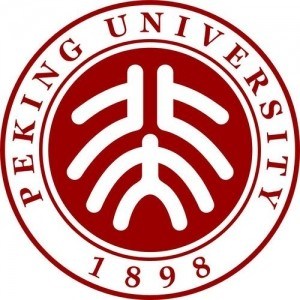Photos of university
The Bachelor of Science in Information and Communication Engineering at Harbin Institute of Technology is a comprehensive undergraduate program designed to cultivate highly skilled professionals capable of designing, analyzing, and maintaining modern communication systems and information networks. This program combines foundational courses in mathematics, physics, and computer science with specialized topics in digital communication, signal processing, network engineering, and wireless communication technologies. Students gain theoretical knowledge and practical skills necessary to innovate and improve communication infrastructure in an increasingly connected world. The curriculum emphasizes both software and hardware aspects of information and communication systems, enabling graduates to work effectively in diverse sectors such as telecommunications, internet services, satellite communications, and multimedia broadcasting.
Throughout the program, students engage in a variety of laboratory exercises and project-based learning activities that enhance their technical proficiency and problem-solving abilities. They are encouraged to participate in internships and collaborative projects with industry partners, providing valuable real-world experience. The program also emphasizes developing students' abilities to adapt to rapid technological changes and to pursue lifelong learning in the field. Faculty members are distinguished experts in their domains, contributing to cutting-edge research and innovation, which is integrated into the teaching process. Graduates of this program are well-prepared to pursue further studies in related fields or to enter the workforce as engineers, researchers, or technical specialists. With a strong emphasis on communication skills, teamwork, and ethical practices, the Bachelor’s in Information and Communication Engineering aims to produce versatile professionals capable of leading technological advancements and contributing to the development of smart communication networks and information society.
Degree Courses
- Chinese culture and cross-cultural communication
- Foundation of Modern Mathematics
- Numerical Analysis
- Linear System Theory
- Physics of semiconductor devices
- Principles of Laser Optoelectronics
- Digital Signal Processing
- Pervasive and Mobile Computing
Optional Courses
- System Identification and Adaptive Control
- Robust Control
- Flight Dynamics and Control
- Variable Structure Control
- The Design of RF CMOS Integrated Circuits
- Introduction of Micron & Nanometer Technology
- Introduction to Optical Fiber Communications
- Information Theory and Coding
- Digital Image Processing
- Spread Spectrum Communications
- Digital Communications
- Artificial intelligence and expert systems
- Pattern Recognition
Special Topic
- Special Topic Courses
Practice Part
- Practice Part
Required Parts
- Academic Communication
- Thesis Proposal
- Interim Inspection
Requirements
- Applicants must be foreign nationals in good health.
- Applicants must have bachelor’s degree.
- HIT Application for Admission to Degree Program
- Notarized copy of Bachelor’s degree (Chinese or English)
- Notarized undergraduate transcript (Chinese or English)
- Two letters of recommendation in Chinese or English from professors
- Study Plan more than 800 words (See Attachment I)
- Copy of Passport
- Language requirement for Chinese-medium Programs: Recent HSK-4 or above, or pass the Chinese Entrance Examination organized by university.
- Language requirement for English-medium Programs: TOEFL 80, IELTS 5.5 or above, or pass the English Entrance Examination organized by university.
- The recent Physical Exam Certificate.
Scholarships
- Chinese Government Scholarship Program
- HIT Scholarship
- HIT-Qingrui Scholarship for International Students
- Special Fund for International Academic Conferences
Registration fee: 400 RMB (Test fee 200RMB)
Housing fee: 600 RMB/month/bed (excluding electricity fee)
Insurance fee: 800 RMB /year


